Where Gods Fall Silent
And Mortals Rise
Dark fantasy that explores the shadows between divinity and humanity, where trauma becomes power and silence speaks louder than prayers.
Reading Order by Timeline
Journey through the ages of the Blood of the Wild Gods universe
The Age of Gods
When Divine Blood Spilled
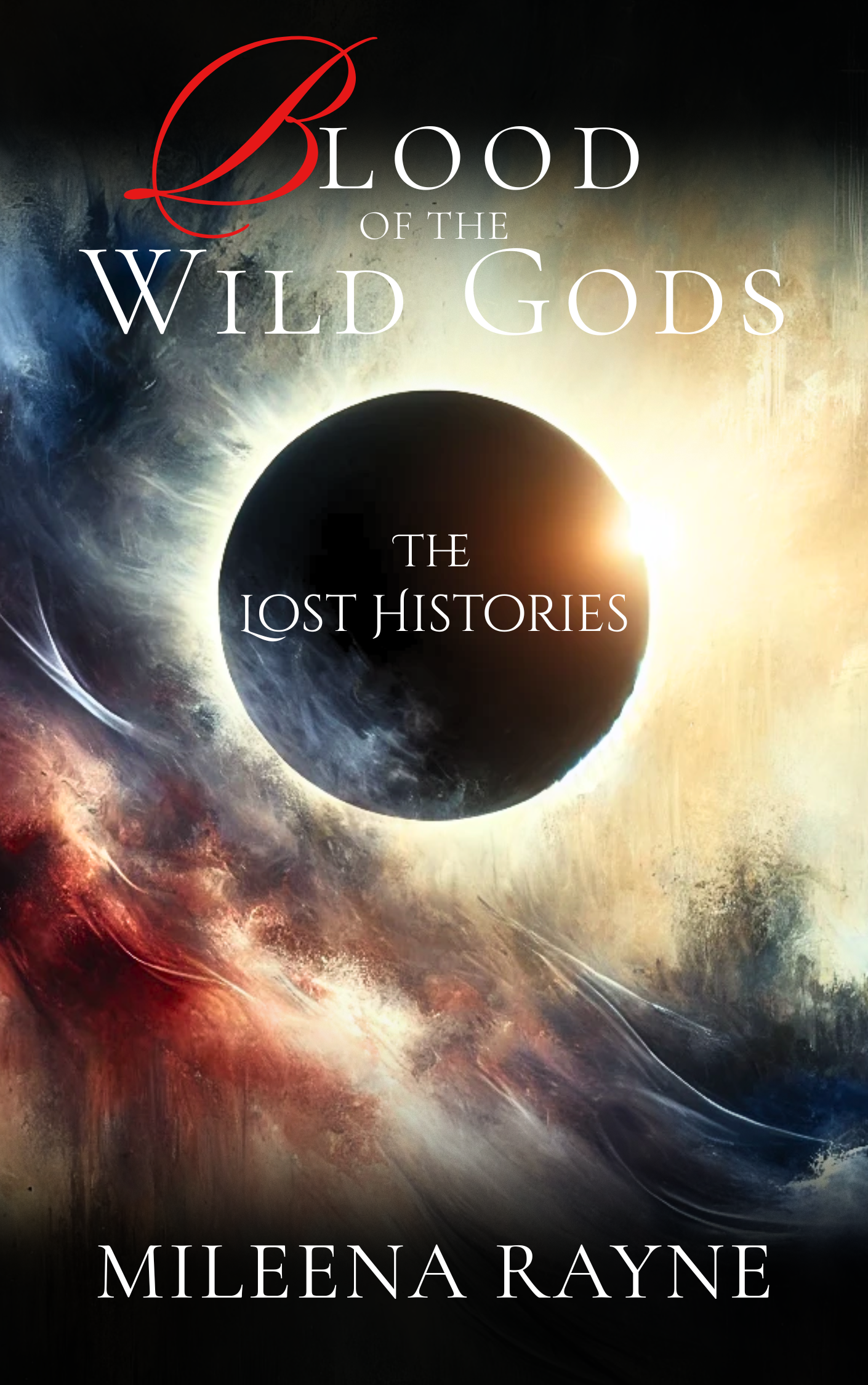
Blood of the Wild Gods: The Lost Histories
Six forgotten tales of divine tragedy and mortal courage, whispered between stone and silence. From "Seven Days of Sun"—a god cursed to watch his beloved die through endless incarnations—to the origin of the Bloodmarked and divine corruption, these histories reveal why the gods fell silent and what price they paid for loving mortals.
Chronicled by Tanneus G'Raja, who died for these truths. Each tale stands alone yet weaves into the greater tapestry of the Blood of the Wild Gods universe.
The Great Withdrawal
When Gods Fell Silent - Humanity created the Common Calendar and sought new prophecies
The Siren Bone Oracle Series
3 Books of Prophecy and Divination
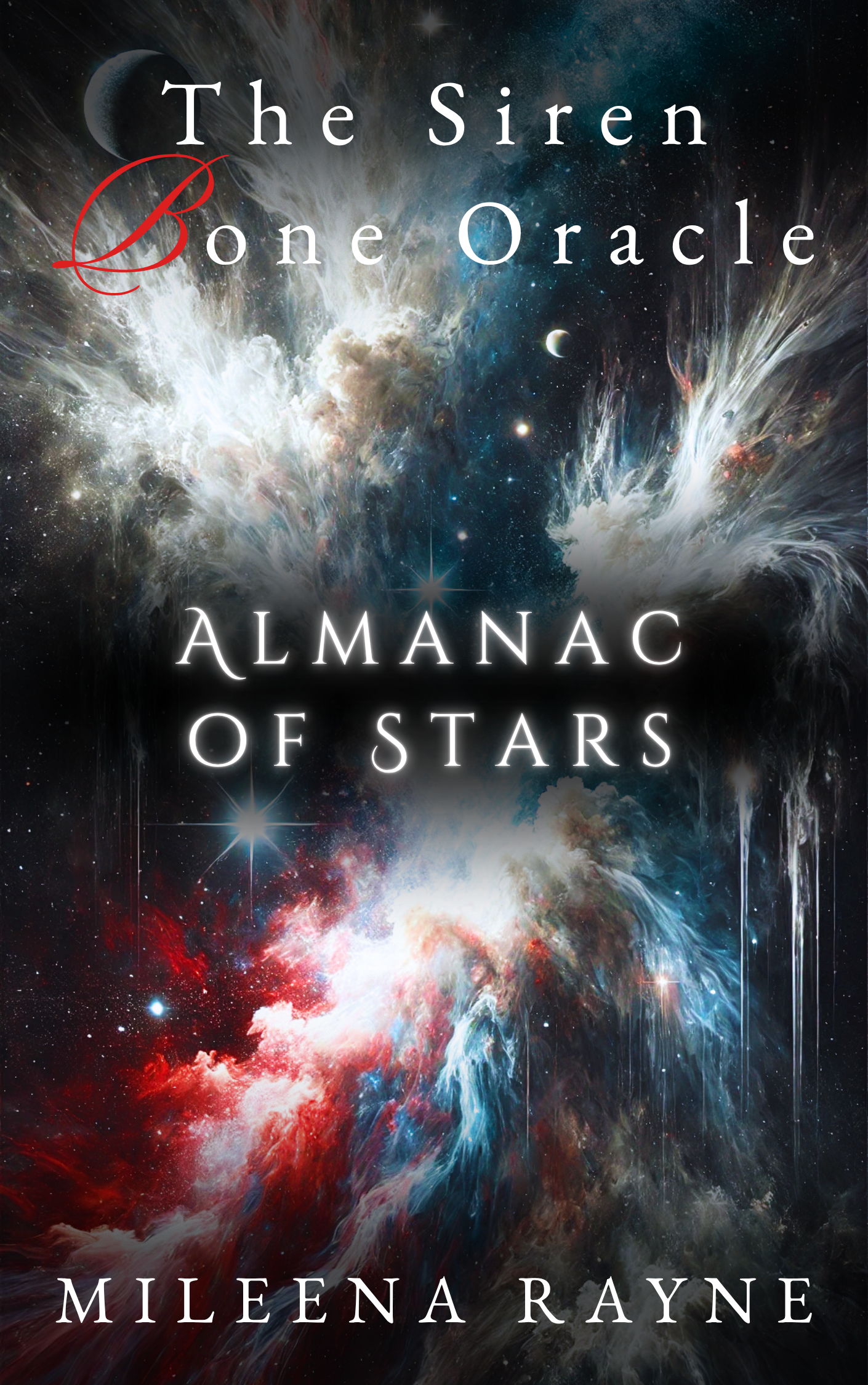
The Siren Bone Oracle: Almanac of Stars
Written 30 years into The Great Withdrawal. When the gods fell silent, humanity needed practical timekeeping for commerce and daily life. Athea, born blind but gifted with star-sight, helped create the Common Calendar—naming its months for constellations both visible and prophesied.
She then wove three divination systems to guide humanity through godless times: the Blood and Bone Tarot, Arcadian Astrology, and daily horoscopes channeled through siren bones. The calendar that keeps merchants' schedules also carries prophecies of ages yet to come.
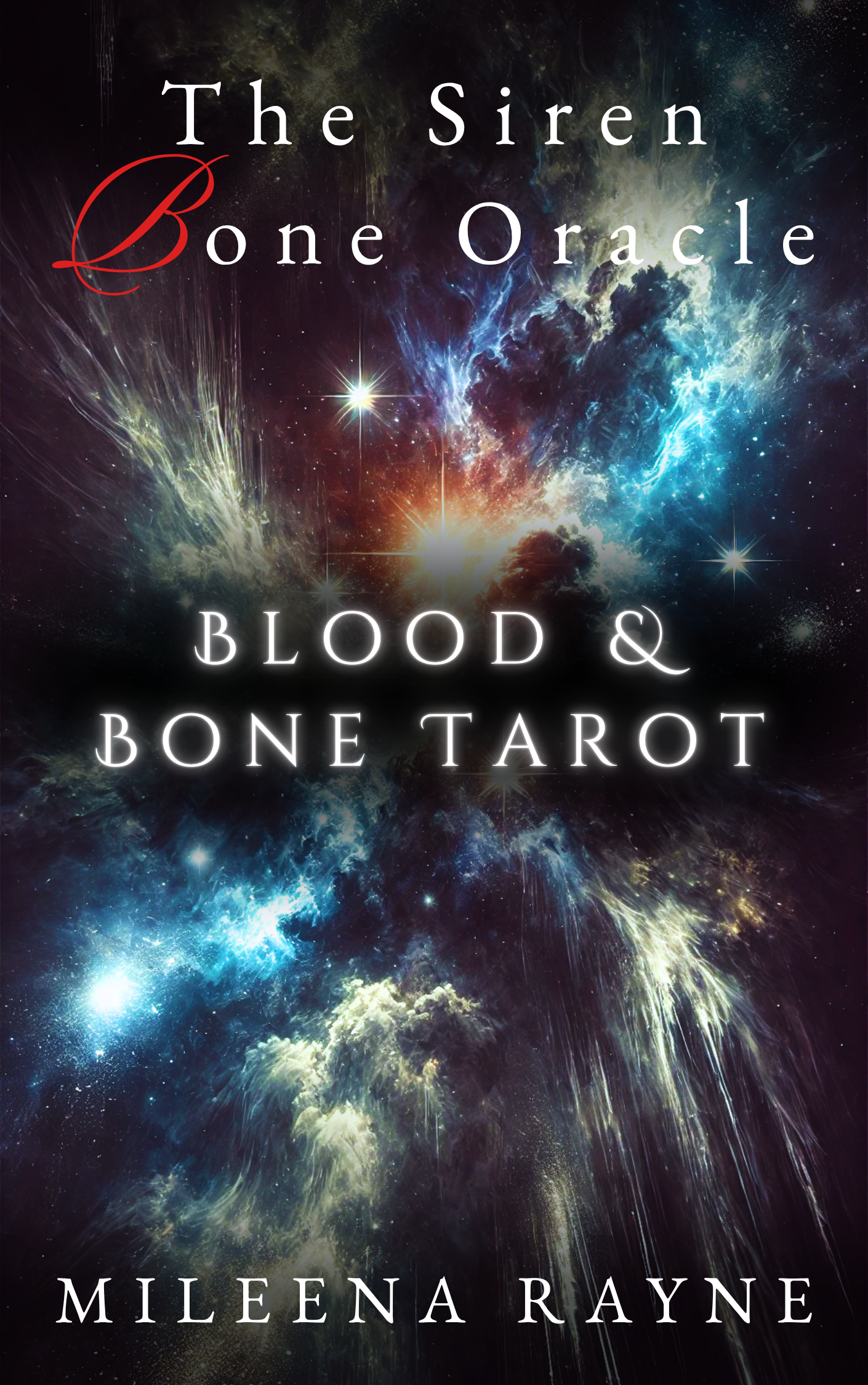
The Siren Bone Oracle: Blood & Bone Tarot
The complete guide to Athea's 78-card divination system, created to help humanity navigate fate without divine intervention. Blood Cards reveal external forces beyond our control while Bone Cards represent the power of choice that remains even in godless times.
Includes full card meanings, spreads, and the stories behind each card's creation. This expanded guide builds on the tarot system introduced in the Almanac.
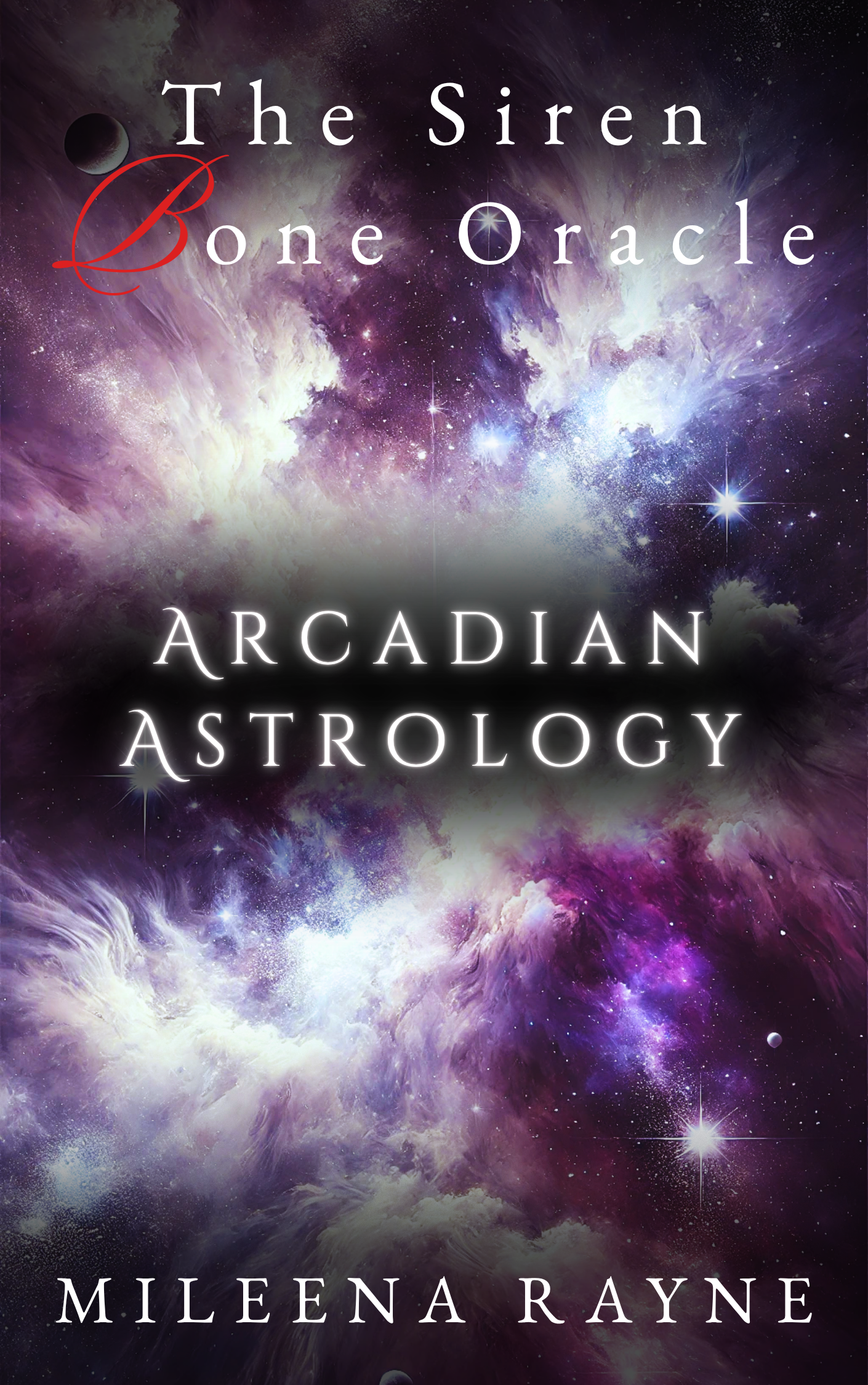
The Siren Bone Oracle: Arcadian Astrology
The comprehensive guide to Athea's astrological system that underpins the Almanac's daily horoscopes. Explores all twelve constellations in depth, the twelve houses, eight moon phases, rising signs, and compatibility.
Reveals why eight constellations remain unborn—waiting for events that will force even the withdrawn gods to watch—and how to read the stars' influence on mortal lives.
The Age of Awakening
When Silence Spoke
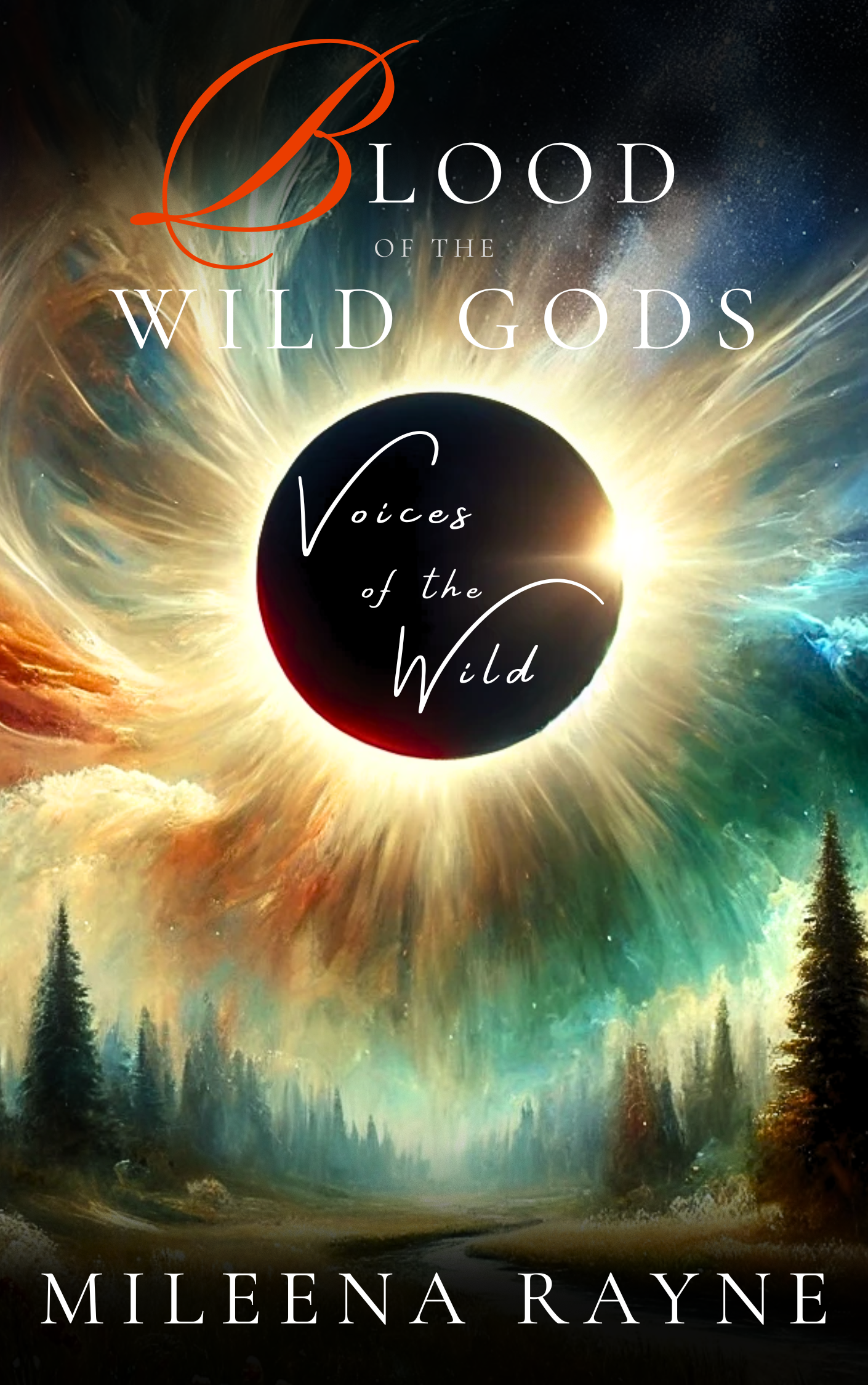
Blood of the Wild Gods: Voices of the Wild
Amateur scholar Alaquinn Althaea's research journal documenting nature spirits who whisper warnings of The Silence returning. What begins as simple academic curiosity unravels into cosmic horror when a water sprite warns: "The Silence... It's coming."
Each journal entry brings Quinn closer to truths that should have remained buried, where the very act of seeking knowledge might be hastening the world's undoing.
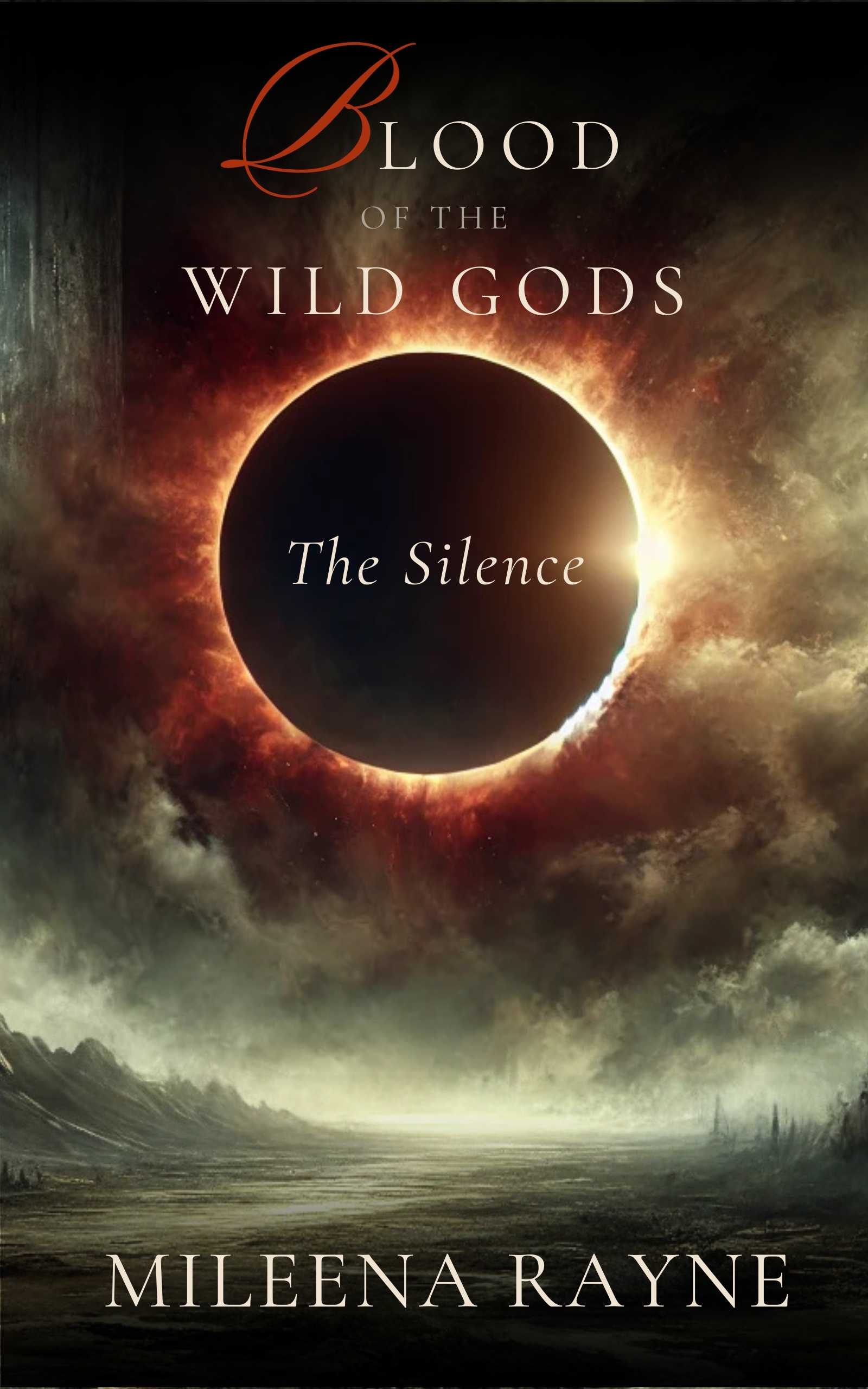
Blood of the Wild Gods: The Silence
Long ago, the gods waged war across the heavens, leaving scars that reshaped the world. Their blood birthed the Beastborn—monstrous creatures of divine wrath—and the Bloodmarked—mortals wielding impossible power, forever teetering on the edge of corruption.
Now, as the Silent God awakens, its whispers reach five mortals: Accept, Emerge, Burn, Flee, Blind. When silence itself becomes a weapon, the fate of the realm depends on choices that defy destiny.
The Age of Consequence
After the Awakening
The Chosen Chronicles
4-Book Epic Series • 18-Year Journey
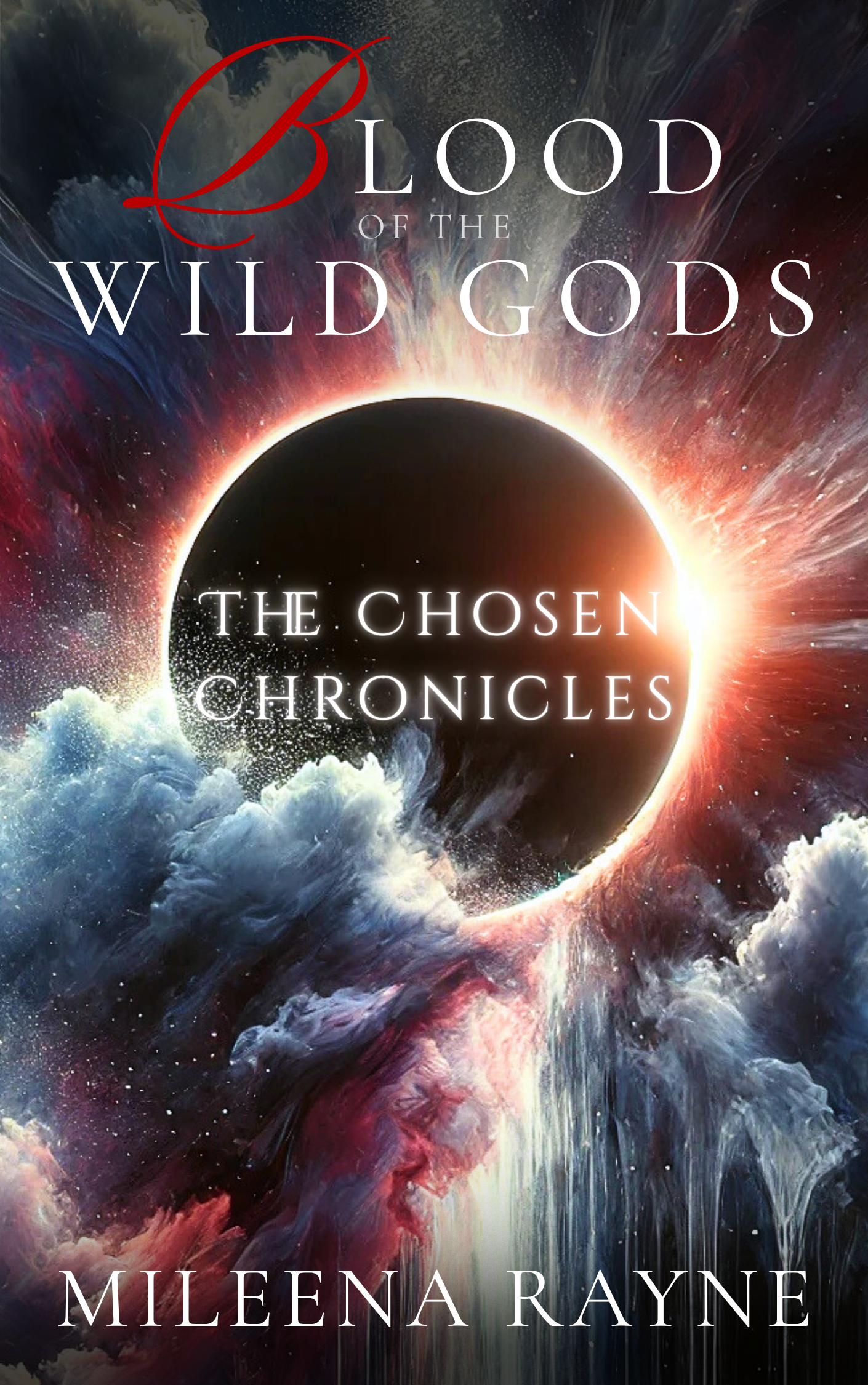
Blood of the Wild Gods: The Chosen Chronicles
Mira Roehart's eighteen-year journey from trapped believer to revolutionary mother. When prophet Lucien arrives promising salvation through Zenith's Light, young Mira becomes trapped in religious extremism and forced marriage. Her escape while pregnant leads to sanctuary among the Forsaken, then years of healing in a magical forest village raising her void-touched son Kai.
The series culminates eighteen years later when mother and son return to confront Lucien and reclaim their world. A generational tale exploring how trauma reverberates through time and how sometimes the greatest victory is surviving long enough to see your children grow strong enough to fight battles you couldn't win alone.
Book 1: The Chosen (Complete - 22 chapters)
Book 2: The Forsaken (In Progress - 16+ chapters)
Book 3: The Village (Coming Soon)
Book 4: The Return (Coming Soon)
The Age of Broken Seals
When Ancient Prisons Open

The Song of the Dragon
For millennia, a haunting melody has whispered through the minds of the grieving—divine comfort, or so the priests claim. But when scholar Eren Glavier loses his beloved Raewyn to plague, the song becomes his obsession. Following a map hidden in its verses, he breaks the seal imprisoning The Dragon—an entity with the power to resurrect anything that has ever died.
Raewyn breathes again, but The Dragon's freedom begins resurrecting the Old Gods who hunger for vengeance. As divine plague spreads and humanity faces extinction or evolution, Eren must choose between the woman he would damn the world to save and the world he must damn her to protect.
Book 1: The Mourning Scholar
Book 2: The Risen Gods
Book 3: The Final Verse